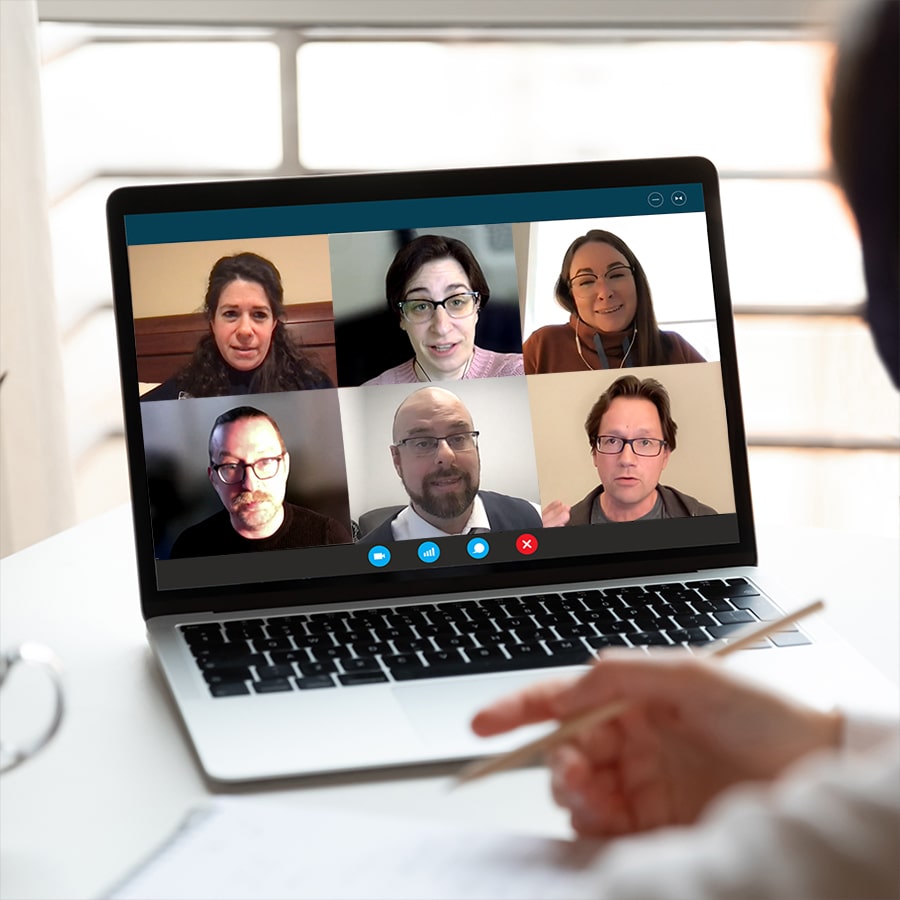- Home
- Dean of Faculty
- Associate Professor
Associate Professor
As an associate professor, you’re integral to our university community. You’re the nuts and bolts of what makes our institution work! You teach, you conduct research, and you take on leadership positions. We want you to feel empowered to continue to shape your journey at UMass Boston however you see fit. Toward that end, we offer the Mid-Career Faculty Seminar to help you meaningfully navigate your professional path into the future.
We also offer leadership opportunities through the Faculty Leadership Fellows Program. In addition, the Center for Innovative Teaching (CIT) and the Office for Faculty Development (OFD) are focused on enrichment—CIT for teaching and pedagogy and OFD for general professional development.
The National Center for Faculty Development and Diversity (NCFDD) is also a good resource for mid-career faculty and can help with work-life balance and research productivity. UMass Boston has an institutional membership to the NCFDD. If you aren't already a member, visit the NCFDD home page and become a member using your UMass Boston email address.
Important Faculty Resources
We’ve compiled the most important links for faculty, including the Annual Faculty Report (AFR), a repository of your yearly teaching, research, scholarship, service, and creative activity.
- The Red Book (Academic Personnel Policy)
- WISER Faculty Guide
- Faculty Staff Union
- Annual Faculty Report

Frequently Asked Questions
We’ve curated a list of FAQs for all faculty. From teaching and student questions to general campus quandaries to advising queries and more, you’ll find everything you need to know right here.

Faculty Leadership Fellows Program
We invite tenured faculty members to apply to the Leadership Fellows program. You'll learn about leadership, data-informed assessment & planning, inclusive excellence, budgeting, personnel management, and conflict resolution. To apply, please send a ~500-word statement on why this opportunity interests you. What do you hope to achieve as a leadership fellow? What skills do you have that benefit the campus? What tasks and responsibilities have you taken on that qualify you for this fellowship?
Faculty Development
These centers and programs are useful for faculty who want to develop and hone their craft and teaching skills.
- Center for Innovative Teaching (CIT)
- National Center for Faculty Development and Diversity (NCFDD)
- Grand Scholarly Challenges

TEACH Sessions
Stay tuned for TEACH session announcements! These virtual sessions are specifically designed to address faculty concerns and questions about a range of issues, including how to create innovative assignments in an age of AI tools and how to ensure students keep up with work when their attendance has suffered due to unavoidable circumstances.
Mid-Career Faculty Seminar
The mid-career phase in academia typically begins a few years after tenure and ends during the late career stage, normally about ten years before retirement. This long post-tenure period has been characterized as one of “unpredictability and complexity, which can result in . . . career maintenance, growth, or stagnation.”[1] It is also when professors may experience a sense of “stuckness” regarding their career trajectory.[2]
To help ensure that this is a period of meaningful growth and productivity, the Mid-Career Faculty Seminar (MCFS) offers UMass Boston professors an opportunity to meet monthly through an entire academic year in a supportive and collaborative environment. Participants will consider where they are in their careers and how to plan for continued progress, including the option of promotion to full professor.
The MCFS coordinators facilitate discussions on sustaining one’s creative and intellectual energies in the context of work-family balance and career burnout. The call for applications for the MCFS typically goes out in April or May for the upcoming academic year.
[1] Welch, Anita G., et al. (2019). "Mid-Career Faculty: Trends, Barriers, and Possibilities." Journal of the Profession, 10(1): 22-41, 24.
[2] West, Ellen L. (2012). "What Are You Doing the Rest of Your Life? Strategies for Fostering Faculty Vitality and Development Mid-Career." (2012) Journal of Learning in Higher Education 8(1): 59-66, 60.
Periodic Multi-Year Review
The Periodic Multi-Year Review (PMYR) is for tenured faculty and librarians on continuing appointment and is conducted every seven years after tenure is awarded. It is a peer assessment of a faculty member’s continued effective performance in teaching, research, and service.
The PMYR may be delayed under certain conditions, such as if a tenured faculty member has an administrative appointment (e.g., a department chair or Associate Dean). Consult your department chair about the timing of your PMYR and the materials required for it. The Office for Faculty Development holds an informational session on the PMYR in May of each academic year.
Research Active
What does it mean to be actively engaged in research? Every department and discipline conceptualizes research, creative, and professional activity differently, and the expectations vary across the natural sciences, social sciences, and humanities.
Research, creative, and professional activity typically comprises submission of articles, creative pieces, and/or grants for review, presentation at conferences, and other professional activity deemed by a department or college to constitute robust participation in and contribution to the discipline. Being research-active is tied to the teaching load for tenured faculty. All pre-tenured faculty are deemed research active and assigned a 2-2 teaching load (2 courses per semester) per academic year.
Department Chairs
Your department chair is your first point of contact for all things academic. To learn the full scope of your department chair’s responsibilities and how they can help you, visit our Department Chair section.